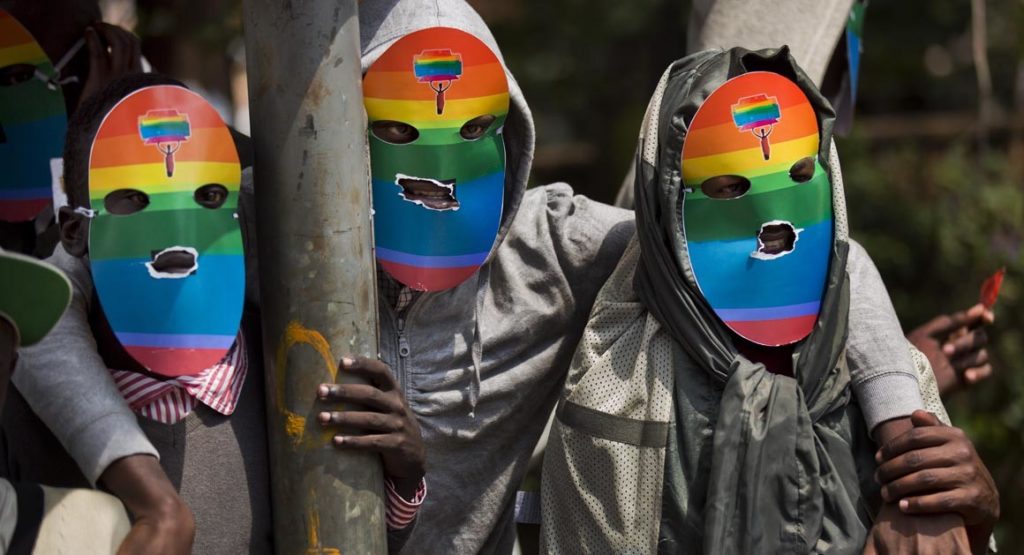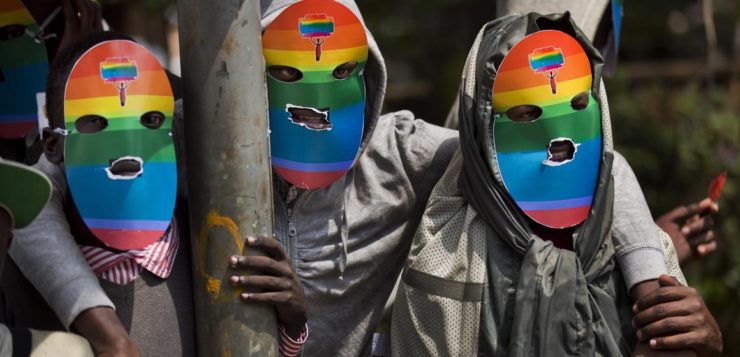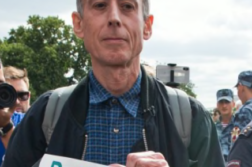IN 2010, after a long and tumultuous struggle, Kenya passed a constitution that guarantees broad rights and freedoms, and it captured the aspirations of its citizens. The constitutional draft was overwhelmingly accepted in a national referendum. The new constitution has been described as one of the most progressive in the world. However, when it comes to LGBT rights, the government has continually violated the concept of equal protection as enshrined in the constitution. This has been due to a lack of political will to apply these rights to LGBT people, along with anti-gay attitudes emanating from a conservative religious culture.
Chapter four of the Kenyan constitution enumerates several rights and freedoms, among them the rights to privacy, freedom of belief and opinion, and freedom of association. The chapter includes a Bill of Rights, self-described as “an integral part of Kenya’s democratic state” and including the following declaration (Part 2): “The purpose of recognizing and protecting human rights and fundamental freedoms is to preserve the dignity of individuals and communities and to promote social justice and the realization of the potential of all human beings.” It goes on to state that these “fundamental freedoms … belong to each individual and are not granted by the State.”

Despite these guarantees, such rights and freedoms are not enjoyed by many in Kenya’s LGBT community, whose members continue to struggle for recognition and inclusion. Even though there has been a proliferation of gay groups and organizations since the mid-2000s to promote awareness, education, and tolerance, LGBT people in Kenya face deep-rooted intolerance. This goes back to the colonial era, when the British enacted anti-gays statutes that carried dire penalties. Post-independence Kenya kept these laws on the books for many years and continues to criminalize homosexual acts. Meanwhile, the spread of Christianity and Islam has only reinforced the anti-gay attitudes of the colonial era. Under the current penal code, anyone engaging in a homosexual act is criminally liable and faces up to fourteen years in prison.
Utterances by top government officials continue to be a troubling reminder of official state resistance to gay equality. In 2015, Kenya’s president Uhuru Kenyatta stated that “gay rights are a non-issue,” displaying clearly his apathy toward LGBT people and his unwillingness to recognize them as part of the Kenyan national fabric. In the same year, Kenya’s deputy president, William Ruto, publicly urged the church to spearhead a campaign against homosexuality in the country, asserting: “We will not allow homosexuality in our society as it violates our religious and cultural beliefs … we will stand with religious leaders to defend our faith and our beliefs.” Over in parliament, where indifference or hostility is the norm, one MP, referring to Uganda’s severe anti-gay law, asked his peers: “Why can’t we just be brave enough, seeing that we are a sovereign state, and outlaw gayism and lesbianism, the way Uganda has done?”
In 2016, the high court of Kenya issued a ruling allowing police to order anal tests for people suspected of being gay, which by itself is demeaning, perverse, and goes against human dignity. On a positive note, a petition in 2015 by the gay groups led the high court of Kenya to strike down a directive that barred these groups from registering with the NGO Council. Nevertheless, it should be noted that this ruling infuriated the Christian churches, which have been adamant in their opposition to LGBT rights in Kenya. Thus, for example, following the high court’s decision, the Anglican Church issued a formal condemnation of the ruling.
Kenya’s anti-gay statutes and their enforcement clearly violate the letter and the spirit of the constitution promulgated in 2010. Likewise, the parliament of Kenya, which is entrusted with making laws that govern the country, continues to ignore LGBT demands for equality, keeping draconian laws on the books, while the judicial branch continues to uphold these laws for the most part. Such actions from a country that bills itself as a progressive bulwark is appalling and should be condemned by the international community. In the recently concluded general election, there was no mention of gay rights by either the government or the opposition, implying that just getting a discussion going will be an uphill battle. Thus it is a responsibility of all Kenyans and well-wishers around the world to push for inclusivity and stand with the LGBT community in Kenya and elsewhere.
Crispas Musau teaches at the Institute on Globalization & the Human Condition at McMaster Univ. in Hamilton, Ontario.




